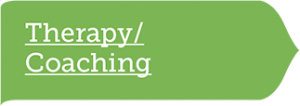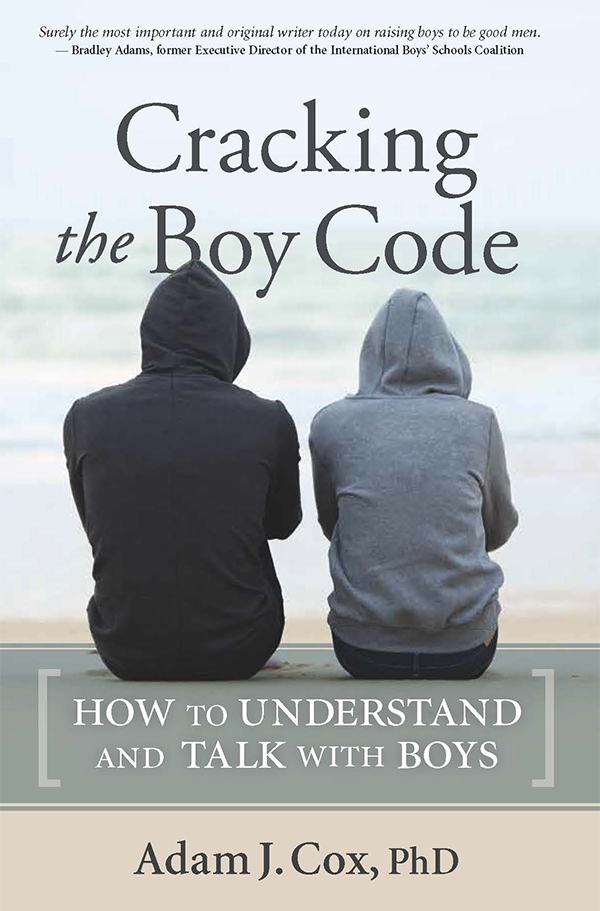 Anyone who has advocated for a child with learning problems knows that terminology – how a child’s learning difficulties are described – may determine what services will or will not be provided. How schools and psychologists label a learning problem is often the critical factor in whether learning needs will be met or marginalized; the difference between success and failure. For years, the primary pathway to accessing extra support has been fitting the criteria for a specific learning disability (SLD) such asdyslexia (reading problem) or dyscalculia (math problem).
Anyone who has advocated for a child with learning problems knows that terminology – how a child’s learning difficulties are described – may determine what services will or will not be provided. How schools and psychologists label a learning problem is often the critical factor in whether learning needs will be met or marginalized; the difference between success and failure. For years, the primary pathway to accessing extra support has been fitting the criteria for a specific learning disability (SLD) such asdyslexia (reading problem) or dyscalculia (math problem).
However, this is a tired and outdated way of looking at learning disorders –even the process of learning itself – and we ought to get rid of it. It is long past time to take off the “glasses” that lead to this myopic perspective of learning disorders so that we can understand the deeper, more prevalent learning challenges that face today’s students.
At this time in history, and especially in education, individuals are affected by learning liabilities much more frequently than they are by learning disabilities. To be clear, I am talking about a very large proportion of today’s students; children whose minds are products of the world we’ve created for them. The pace of contemporary life, the incessant demand for greater productivity and efficiency, and the multitasking required to manage multiple streams of information are huge hurdles that today’s learners must get over. Hurdles some might say are as high as learning to read.
What is a Learning Liability?
A learning liability is any type of cognitive problem that interferes with being able to learn up to one’s potential. The classic example of a learning liability is a problem with executive control (often erroneously referred to as ADHD). Poor organizational skills, limited time awareness, and impaired working memory do not describe a specific learning disability – but you can be sure that they add up to a substantial problem with academic output. Social learning may be affected as well. There is little doubt that executive control also shapes social skills.
The net effect is much the same as with a specific learning disability – a decline in grades, attitude, and effort. However, learning liabilities do not carry the same weight as an SLD with many public school systems.
(Notably, one of the great inequities of public education in the United States is that school districts have substantial latitude in how they define students who qualify for special education. If you live in a district that narrowly defines learning problems as SLD’s, you likely recognize the strictures of that latitude. If you live in a district whose leadership embraces a broader understanding of learning problems, count yourself fortunate. This difference in approach is often driven less by philosophy than access to resources. Who gets help is determined by those who must justify expenditures and find resources – not an easy job.)
Thinking about Thinking
When it comes to understanding learning liabilities, the primary concern is a problem with what is called metac ognition. Essentially, this term refers to how well one can think about (orchestrate) his or her own thinking skills. Think of the situation this way: on one level, students have to attend to the microskills of a particular academic task. For example, if they are reading, they have to decode phonemes accurately and rapidly enough to sustain reading fluency and enable comprehension.
But on a metacognitive level, students also have to remain aware of their learning behavior – what we might commonly think of as study skills – such as how well they are blocking distraction, following along with the teacher, or keeping pace with other students. These aspects of thought coordination exist apart from raw reading skills, yet they may be equally important in determining reading performance.
If a child has trouble decoding phonemes, she or he clearly has a learning disability, and will likely receive needed educational support. In contrast, a child who has trouble coordinating attention, using working memory, or getting organized, may get little more than disapproving looks or a stern reprimand.
A Double Standard?
In my view, metacognitive skills are the victim of a double-standard when it comes to appreciating learning differences. Rather than recognizing these skills as being of paramount importance to academic success, with many students in desperate need of coaching and instruction, we often categorize such traits as a moral problem reflecting bad attitude or character. “He doesn’t try hard enough.” “She just doesn’t care.” “He could do it if he really wanted to.”
To be sure, there are students who do need an attitude adjustment, and parents who game the system. Taking personal responsibility works for everyone, particularly those who must work harder to keep up. Many of the families I work with would tell you I’m all about getting the job done. Yet in my clinical work I see too many kids getting emotionally battered for an unrecognized – but real – problem. The language and terms of metacognition still exist primarily on the fringes of education, unknown to many.
So, how did this double standard gain so much traction? Well, it’s an old story when it comes to the fine line between a moral problem and a medical problem. Interestingly, the distinction is often framed as the difference between badness and illness, as in the long -running TV drama Law & Order which has spun dozens of episodes on how the legal system struggles with determining culpability for criminal behavior. Did the defendants’ mental illness make them do it or did they have a choice?
Most of us find such important questions fascinating, and on a smaller scale the same dichotomy shapes the debate about who should get supportive services in school. Regrettably, we too often frame learning liabilities as subtle forms of “badness,” and as a result, unworthy of supportive intervention.
We Also Need to School the Home
In my clinical work, this viewpoint sometimes takes the form of disheartening exchanges between parents and children in the consulting room. Recently, I met with achievement-focused parents and their 11 year- old daughter, who was falling behind in science and math. Her parents complained, “She doesn’t listen to us – she doesn’t understand she needs to apply herself – she has the intelligence to do the work, but evidently she’s decided not to try,” and finally, “Can you motivate her? – she’s got to learn to like math and science if she’s going to get ahead.” Internally, I sighed. As the litany of complaints continued, the girl slumped in her seat. She was looking down but I could see tears flowing from her eyes. I could imagine the shame, anger, and frustration she felt.
In some families, lack of achievement, particularly in “smart” kids, is experienced by the parents as a shameful loss of opportunity stemming from intractable defiance. But in many of these situations, it’s not an attitude problem–at least initially– but rather a brain processing (learning liability) problem. When we are able to move from moralizing to problem-solving, from bossing to coaching, success starts sprouting up everywhere.
It is time to give outdated, narrow perspectives of learning disorders the proverbial boot! Why should we cling to simple classifications of learning problems when the process of learning is so much more complex? The best schools approach learning challenges holistically. For many others the nomenclature has not caught up with the understanding of learning we now have. And that’s my idea of an “achievement gap!”
What’s News
 For several years, public health organizations have been working intensively to understand the recent rise in the prevalence of developmental disabilities among children. Like most complex questions, this one seems to have an equally complex answer that will only unfold over time. However, new research appears to shed light on an important piece of the puzzle. A team from the Harvard University’s School of Public Health has found that millions of children have been affected by industrial chemicals that have lowered IQs, shortened attention spans, and triggered behavior problems.
For several years, public health organizations have been working intensively to understand the recent rise in the prevalence of developmental disabilities among children. Like most complex questions, this one seems to have an equally complex answer that will only unfold over time. However, new research appears to shed light on an important piece of the puzzle. A team from the Harvard University’s School of Public Health has found that millions of children have been affected by industrial chemicals that have lowered IQs, shortened attention spans, and triggered behavior problems.
More specifically, Harvard’s report calls for better regulation of 201 chemicals with neurotoxic effects as reported by Margaret Munro of The Vancouver Sun. Researchers state that while lead and mercury may be the best known neurotoxins, many pesticides and solvents can affect the brain. Other chemicals to be concerned about are manganese, fluoride, and percholate.
Although children worldwide are being affected, there is particular concern for Canadian children who appear to be more vulnerable to environmentally- based toxic exposure than children elsewhere. Health Canada and Environment Canada have promised a chemical management strategy to better protect human health according to Jason Bouzanis, media relations officer at Health Canada. Somewhat ominously, Harvard’s report concludes, “The combined evidence suggests that neurodevelopmental disorders caused by industrial chemicals has created a silent pandemic in modern society.”
Because I don’t like to end with bad news – The March 26th issue of Newsweek included a special section on the value of exercise to brain health. The article by Mary Carmichael sheds considerable light on folk wisdom, namely that exercise seems to help kids with ADHD. Sure enough, Phil Tomporowski, a professor of exercise science at the University of Georgia has found that exercise helps the brain’s hippocampus (responsible for medium-term memory) and also seems to speed up executive functioning – the benefits of which are illustrated at length in my next book – No Mind Left Behind.
Hey, what does this say about the logic of shrinking recess periods for younger children, and the plight of older kids who have less time for physical activity because they have so much homework to do? Hmmm.
Ask Dr. Cox
 Q. Help!! My son absolutely refuses to apologize for anything – I mean anything. Is this normal? My husband says it’s “just a phase,” but it creates a lot of friction at home, and I’m worried that if I don’t call him on it, it’ll get worse. I also think it’s affecting his friends. How is he supposed to respect me or anyone else if he doesn’t accept responsibility for his mistakes? What can my husband and I do?
Q. Help!! My son absolutely refuses to apologize for anything – I mean anything. Is this normal? My husband says it’s “just a phase,” but it creates a lot of friction at home, and I’m worried that if I don’t call him on it, it’ll get worse. I also think it’s affecting his friends. How is he supposed to respect me or anyone else if he doesn’t accept responsibility for his mistakes? What can my husband and I do?
Gayle R., Morristown, NJ
Dear Gayle, I’m sending you a thousand “thank yous” for this question! You’ve given me a chance to talk about a key issue with respect to the development of boys. There is hardly any behavior that speaks more directly to a boy’s sense of vulnerability than having to apologize. Most boys avoid it like the plague. (Some of us men don’t do so well either.) Please don’t mistake your son’s reluctance to apologize for a problem understanding the difference between right and wrong. He knows when he has made a mistake but, like many boys, he may think that if he apologizes he is accepting “defeat.”
Can you see the conundrum?
An apology should be a way of moving on – letting go of a bad decision and getting on with making better decisions. Yet in the minds of boys it gets framed as the difference between being the victor or the vanquished. Boys have to learn that being wrong is not synonymous with being weak, and having the strength to apologize can be a sign of leadership, confidence, and character.
An effective way for boys to grasp and accept this concept is by way of a male role model, typically their father. I strongly suggest that fathers show their sons how to apologize. I don’t mean “tell” them, I mean “show” them. When fathers demonstrate how to apologize in a stand-up way, the message is that apologizing can be manly. If necessary, your husband could deliberately make a mistake – perhaps say something wrong – and then make a point of apologizing for it. It is especially important for boys to see their fathers apologize to their mothers. This can prevent much of the disrespectfulness that shows up in tweens.
If your son sees his father apologize frequently enough, he will accept apologizing as part of the code for acceptable male behavior in your family. The more routine apologizing becomes, the easier it will be for your son. (Of course this doesn’t mean that he’s free to do anything as long as he follows up with a pleasant, “Sorry!”)
We are most successful conveying this type of moral code to boys when we dispense with a lot of unproductive discussion. We can trust that boys already know what the right thing to do is. And coercing an apology only reinforces that they are the “vanquished.” Instead, we clear a path for apology by way of positive example, and briefly acknowledging kids when they get it right–“We know that wasn’t easy for you to do, but you did a good job and we’re proud of you.” What an incredible gift it is to show our kids they don’t always have to be right! We relieve a lifetime of unnecessary emotional burden and open the door to meaningful self-esteem.
Find more helpful articles and insights at:
dradamcox.com
Do you have a question for Dr. Cox? Email your query with “question for Dr. Cox” in the subject line -your question may be answered in an upcoming issue of Family Matters!




